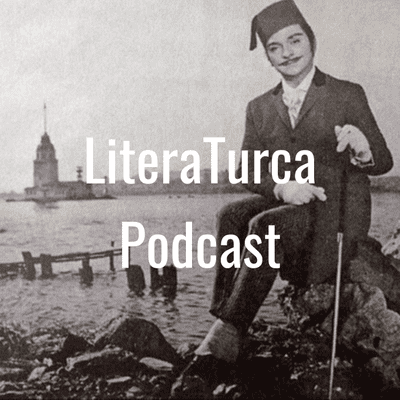
LiteraTurca Podcast
Englisch
Gratis en Podimo
Kostenlos hören bei Podimo
Starte jetzt und verbinde dich mit deinen Lieblingspodcaster*innen
- Vertraut von über 1 Mio. deutschen Hörer*innen
- Über 1.000 lokale Podcasts und Shows – nur bei Podimo
- Keine Zahlung nötig
Mehr LiteraTurca Podcast
A podcast about modern and contemporary Turkish literature and culture. Hosted by Ipek Sahinler. For more info: http://literaturcapodcast.com/
Alle Folgen
6 FolgenEpisode 6: Refik Halit Karay and the Axis of Exile in Ottoman-Turkish - a talk with Nefise Kahraman and Karolina Dejnicka
In this episode, I am chatting with Nefise and Karol about their recent translation: Refik Halit Karay's Stories of Exile [https://translationattached.com/available-now/](Gurbet Hikâyeleri, 1940). Published in October 2022 by TranslationAttached, this is a priceless collaborative work that helps make Karay accessible in English.
Episode 5: Writing Queer Joy in the 1970s Turkey - a talk with Maureen Freely about Sevgi Soysal's Dawn
Today is the 28th of February 2023 and in this episode, I'm conversing with Maureen Freely about the novel she recently translated-Sevgi Soysal's Dawn [https://www.nytimes.com/2022/11/19/books/review/sevgi-soysal-dawn.html] (Archipelago Books: Nov 2022). She is in Warwick and I'm in Austin. The episode also features reflections of Funda Soysal and Duygu Dalyanoğlu.
Episode 4: "Dude Lit" and Crisis of Masculinity in Contemporary Turkish Literature: Barış Bıçakçı - a Talk with Matthew Chovanec
In this episode, we host Matthew Chovanec, the translator of Barış Bıçakçı’s The Mosquito Bite Author. We talk about Turkish "dude lit" and masculinity crisis, analyze the vain male figure's survival strategies, and look at how the novel deals with the trials of privileged man-boys.
Episode 3: The Overlooked Shores of Ahmet Hamdi Tanpınar - A Talk with Erdağ Göknar
This episode is devoted to the Turkish writer Ahmet Hamdi Tanpınar who was born in Istanbul in 1901. I am conversing with Erdağ Göknar, who is an associate Professor of Turkish Studies at Duke University and an award-winning translator. Dr. Göknar translated Orhan Pamuk’s My Name is Red, Atiq Rahmi’s Earth and Ashes and finally Tanpınar’s A Mind at Peace [Huzur, 1948]. At first glance, A Mind at Peace looks like a historical novel and a love story set in Istanbul on the eve of WWII. The cosmopolitan protagonist Mümtaz is caught between Ottoman tradition and Turkish modernity as he longs for reunion with his beloved Nuran. He takes refuge in the fading Ottoman past, immersing himself in literature and music, but he is forced to confront the challenges of the everyday world and impending war. In our conversation, we try to go beyond the mainstream interpretations of this novel and zoom into some overlooked aspects in Huzur, such as Tanpınar’s specific word choices, the Christian imagery he draws on, the messianic descriptions of the character called Suat, and the problematics of translating Tanpınaresque sentences into English.
Episode 2: The Master of Linguistic Ambiguity in Turkish: Bilge Karasu / Part II
A Talk with Dr. Aron Aji















































